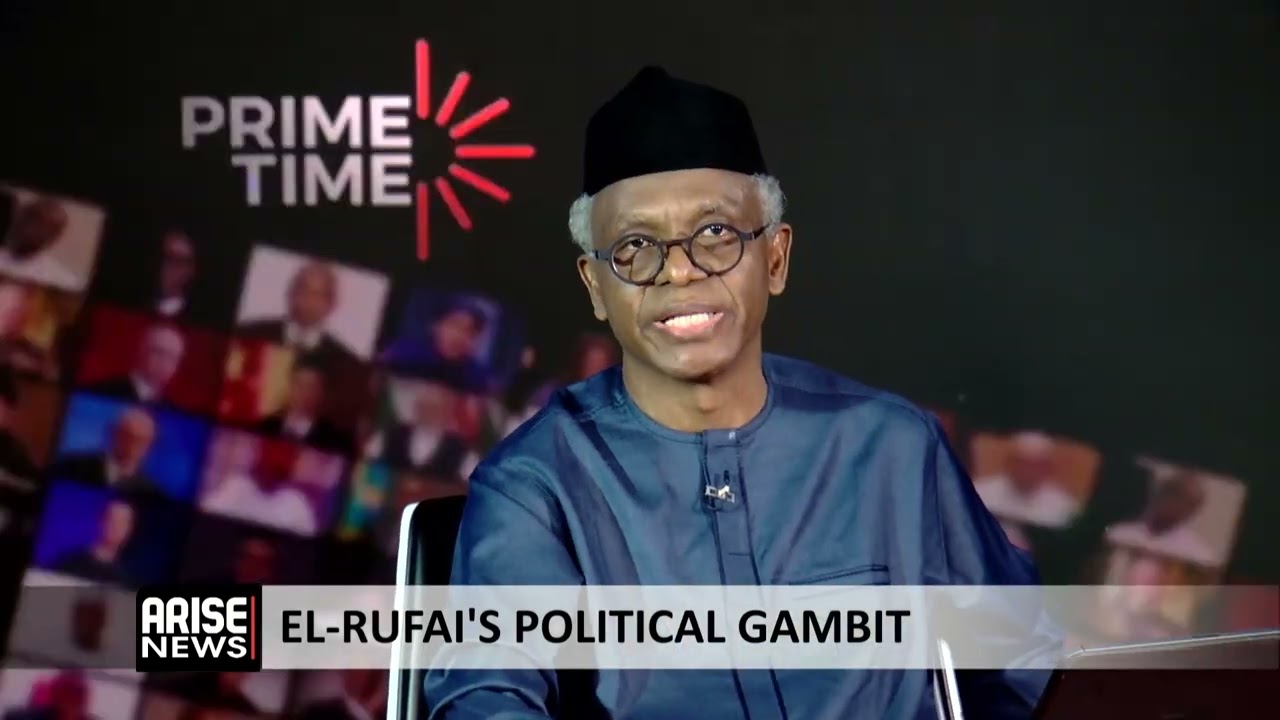General
ASUU Gives February Deadline Before Planned Strike

By Adedapo Adesanya
The Academic Staff Union of Universities (ASUU) has decided to hold on till February before embarking on a nationwide industrial action.
This follows intervention from the Nigeria Inter-Religious Council (NIREC) which plans to avert the strike action as the federal government was yet to fully fulfil its agreement with the academic pressure group.
The 50-member NIREC, under the co-chairmanship of the Sultan of Sokoto, Mr Muhammad Sa’ad Abubakar III; and the Chairman of the Christian Association of Nigeria (CAN), Mr Samson Olasupo Ayokunle, is also backed by the Bishop of the Catholic Diocese of Sokoto, Bishop Mathew Kukah, among other Christian and Muslim leaders.
ASUU had resolved to embark on industrial action to compel the federal government to meet its demands since last year, threatening strike action among government-owned universities.
However, following the intervention of NIREC, ASUU has opted to go for more consultations and to give the government a few days within January 2022 to address all outstanding issues arising from the December 2020 Memorandum of Action (MoA).
In an interview with THISDAY Newspaper over the weekend, ASUU President, Mr Emmanuel Osodake, said that the union had agreed to wait till February.
He also added that it has also submitted its position to NIREC which promised to help mediate and resolve the issues.
“ASUU leadership has agreed to wait till February to give NIREC and other stakeholders enough room to address the union’s grievances,” he said.
The decision of ASUU to suspend action till February is seen as bowing to pressure from prominent Nigerians and the leadership of NIREC comprising of the Sultan of Sokoto, the president of the CAN and other stakeholders.
Mr Osodeke noted that ASUU would resist any attempt to blackmail it and derail its patriotic struggle for a productive university system “by official propaganda founded on tokenism and crumb-sharing”.
Its earlier statement had summed up the decisions reached at the emergency National Executive Council (NEC) of the union held at its National Secretariat, University of Abuja.
The meeting was meant to review the level of government’s implementation of the FGN-ASUU Memorandum of Action (MoA) of December 23, 2020, and other related matters to decide on the way forward.
In deciding to stay action on strike, Mr Osodake said: “NEC took full account of efforts by student union bodies, leading media organisations, traditional rulers, civil society organisations and other interest groups within and outside Nigeria to make government address all outstanding issues arising from the December 2020 MoA”.
In particular, the ASUU president said the union took special cognisance of the pledges made by the NIREC to make further consultations on the crisis in the coming days to find an amicable resolution.
He accused the government of reneging on its promise to set up an inter-ministerial committee to handle renegotiation of the 2009 agreement.
One of the issues in contention is the delay in approving the University Transparency Accountability Solution (UTAS) developed by ASUU.
ASUU said it was fully prepared to address all the reports of the “integrity test” on UTAS raised by the Nigeria Information Technology Development Agency (NITDA) to pave way for its deployment.
General
FG Sues El-Rufai Over Alleged Interception of NSA Ribadu’s Communications

By Adedapo Adesanya
The federal government has filed a three-count charge against former governor of Kaduna State, Mr Nasir El-Rufai, over an alleged interception of communications belonging to Nigeria’s National Security Adviser (NSA), Mr Nuhu Ribadu.
Last week, Mr El-Rufai claimed in an interview that he and other unnamed individuals listened to conversations from Mr Ribadu’s phone after it was tapped by a third party. While acknowledging that such interception is technically unlawful, he argued that illegal surveillance was not unusual.
However, the federal government, through the Department of State Services (DSS), filed charges against Mr El-Rufai at the Federal High Court in Abuja.
The government stated that Mr El-Rufai admitted that he and his cohorts allegedly intercepted the NSA’s phone conversations.
In count one, the accused was alleged to have disclosed on Arise TV’s Prime Time Programme in Abuja that he and his associates unlawfully intercepted the phone communications of the National Security Adviser, which is an offence contrary to and punishable under Section 12(1) of the Cybercrimes (Prohibition, Prevention, etc.) Amendment Act, 2024.
The second charge alleged that the accused knowingly maintained a relationship with an individual who unlawfully intercepted the phone communications of Mr Ribadu, without reporting such individual to the appropriate security agencies, an offence contrary to and punishable under Section 27(b) of the Cybercrimes (Prohibition, Prevention, etc.) Amendment Act, 2024.
In the last charge, Mr El Rufai, together with others presently at large, is also alleged to have, sometime in 2026 in Abuja within the jurisdiction of this Court, utilised technical equipment or systems in a manner that compromised public safety and national security, thereby instilling reasonable apprehension of insecurity among Nigerians through the unlawful interception of the phone communications of the National Security Adviser, Nuhu Ribadu. The charge further relies on his admission during the February 13 interview. These acts are alleged to constitute an offence contrary to and punishable under Section 131(2) of the Nigerian Communications Act 2003.
General
Nigerian Bottling Company Bridges Education, Employability Gap

By Modupe Gbadeyanka
The Nigerian Bottling Company (NBC) has reaffirmed its determination to bridge the gap between education and employability in the country by sustaining its flagship Youth Empowered (YE) programme.
This initiative provides hands-on learning, real-world insights, and access to career-shaping opportunities to young Nigerians.
The 2026 edition of the scheme commenced on February 2 at the University of Lagos (UNILAG), with participants mainly young people between the ages of 16 and 35.
A statement from the organisation said this year’s rollout will expand to more tertiary institutions, including the Federal University of Technology, Akure (FUTA). This follows a successful 2025 tour that reached seven cities across the country, including Makurdi, Jos, Benin, Kaduna, Asaba, Akure, and Port Harcourt.
Participants in the 2026 programme will receive training across key modules designed to support personal, professional, and business growth, including Business Life Skills, Adaptability and Resilience, Financial Literacy, Customer Service and Communication, Sales and Negotiation Skills, and Workplace Ethics.
The sessions will also feature breakout workshops on Business Planning, Project Management, and Time Management, alongside the Director’s Grant Pitch Competition, where participants can pitch their ideas for a chance to win business funding.
In addition to skills development, NBC’s People and Culture team will be present throughout the programme to identify outstanding talent for future opportunities within the organisation, further strengthening the connection between learning, employment, and long-term career growth.
One of the participants at the UNILAG training, Waliat Adedogun, who received a cash grant through the Director’s Grant Pitch Competition to support her small business, said: “Youth Empowered gave me more than training; it gave me clarity and confidence. Winning the grant means I can finally take my business idea from a dream into something real. I now feel prepared to build, grow, and create opportunities not just for myself, but for others too.”
Since its launch in 2017, the scheme has impacted more than 70,000 young Nigerians, equipping participants with practical skills, confidence, and exposure needed to succeed in today’s dynamic workplace and entrepreneurial landscape.
This year’s programme is being delivered in collaboration with Fate Foundation as the implementing partner, with funding support from The Coca-Cola HBC Foundation.
Last year, 10 beneficiaries were selected for six-month paid internships across NBC locations in Lagos, Ibadan, Asejire, and Challawa, gaining direct industry exposure.
Additionally, three outstanding participants received sponsorship for an all-expenses-paid intensive culinary training programme and were awarded N1 million each to support the launch of their businesses.
General
INEC Fixes February 20 for 2027 Presidential, NASS Elections

By Modupe Gbadeyanka
The 2027 presidential and National Assembly elections will take place on Saturday, February 20, the Independent National Electoral Commission (INEC) has revealed.
In a notice for the 2027 general polls issued on Friday, the electoral umpire also disclosed that the governorship and state assembly elections for next year would be on Saturday, March 6.
Speaking at a news briefing in Abuja today, the chairman of INEC, Mr Joash Amupitan, expressed the readiness of the commission to conduct the polls next year, which is 12 months away.
The timetable issued by the organisation for the polls comes when the federal parliament has yet to transmit the amended electoral bill to President Bola Tinubu for assent.
This week, the Senate passed the electoral bill, reducing the notice of elections from 360 days to 180 days, while the transmission of results was mandated with a proviso.
Recall that on February 4, INEC said it was ready to go ahead with preparations for the elections despite the delay in the passage of the amended electoral law of 2022.
-

 Feature/OPED6 years ago
Feature/OPED6 years agoDavos was Different this year
-
Travel/Tourism10 years ago
Lagos Seals Western Lodge Hotel In Ikorodu
-

 Showbiz3 years ago
Showbiz3 years agoEstranged Lover Releases Videos of Empress Njamah Bathing
-

 Banking8 years ago
Banking8 years agoSort Codes of GTBank Branches in Nigeria
-

 Economy3 years ago
Economy3 years agoSubsidy Removal: CNG at N130 Per Litre Cheaper Than Petrol—IPMAN
-

 Banking3 years ago
Banking3 years agoSort Codes of UBA Branches in Nigeria
-

 Banking3 years ago
Banking3 years agoFirst Bank Announces Planned Downtime
-

 Sports3 years ago
Sports3 years agoHighest Paid Nigerian Footballer – How Much Do Nigerian Footballers Earn














